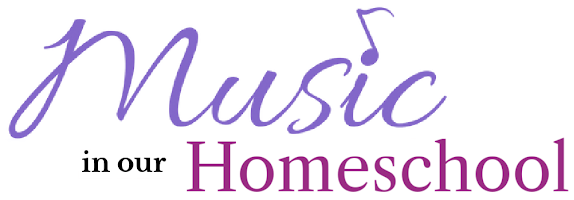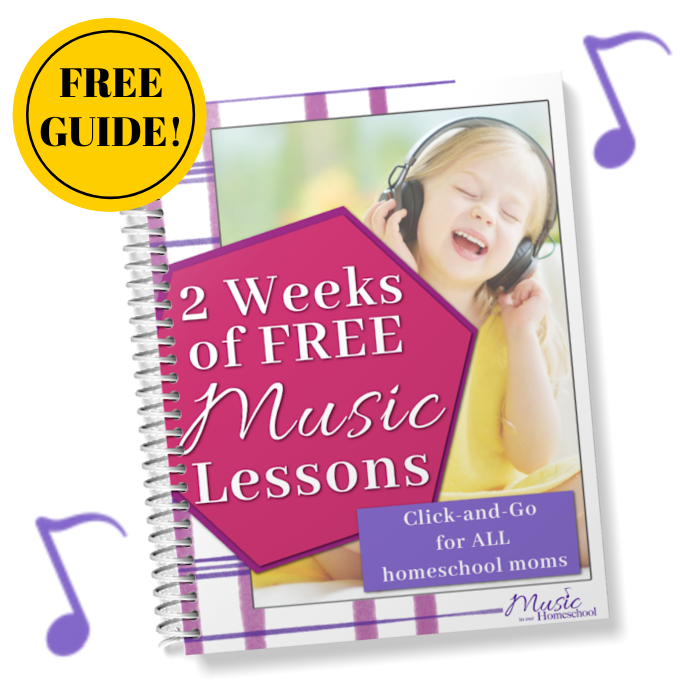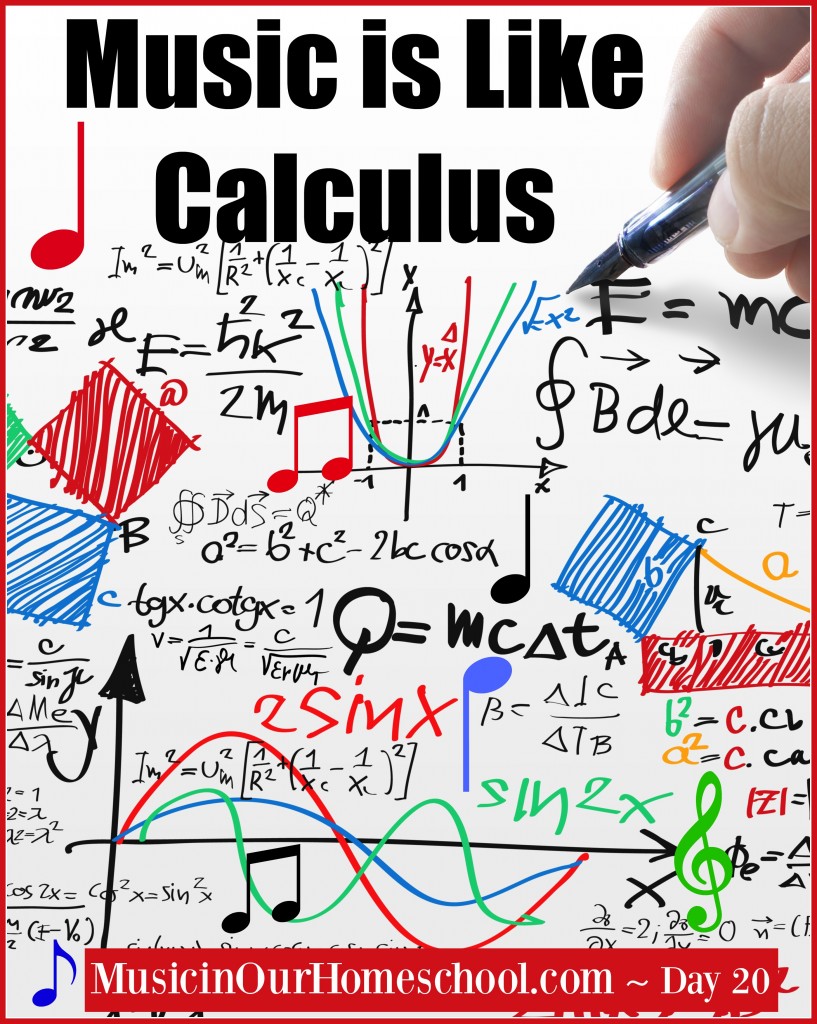Music is Like Calculus (Day 20)
Music is like Calculus
[Today’s article was written by Michael Mayo and is part of the 31 Days of Music in Our Homeschool Series.]
I recently had the proverbial why-do-I-need-to-learn-algebra discussion with a son. His conclusion: “It’s not like I’m ever going to use this stuff!” You’ve heard it before. You’ve probably used the argument yourself. Some of us directed the argument against Calculus, a course of study required in our science major in college.
I’m an intellectual property lawyer with an undergraduate degree in biochemistry. Two semesters of Calculus were required for my degree. I don’t use calculus on the job. Though I need to understand science and engineering, rarely have mathematical calculations—like those of calculus—come into play. So is it true? Was the study of calculus a waste of time for me? No. Quite the opposite.
Calculus is the mathematical study of our physical world. It integrates tangible reality into quantifiable mathematical certainty. It makes sense of rates of processes like gravity, electricity, hydrology, biological function, astronomy and other expressions of physics. It reports that the physical world is all logical, quantifiable, expressible and knowable. My study of the brilliant invention of calculus had two effects on me, one short-term, the other life-long. Sure, I learned how to solve the equations and calculate the value of two and three dimensional objects. I’ve forgotten how to do that. More importantly, however, calculus ripened my mind, helping me understand how things are put together, how apparent randomness isn’t chaotic, but ordered.
The un-ripened mind is one of dis-integration. It cannot make sense of reality in the deeper sense, as it has no basis for integration of knowledge. Knowledge to the naive is a mere collection of disparate facts. In other words, no unifying assimilation to make sense of the whole of God’s creation.
I don’t consciously focus on the beauty of this calculus-encouraged, knowledge integration, but it’s influence undeniable. If you’ve been around an exceptionally bright individual you’ve likely marveled at his or her cogent explanation of complex, inter-related pieces of a subject. I would suggest that such a mind has matured through the education of integrating subjects like calculus . . . and music.
Music, an integrating subject . . .?
Music is the complex art form of sound. All music is ordered and (if it’s music and not just sound) in such a way that it is “catchy” and attractive. Have you ever noticed that some songs “work,” while others do not? Have you ever wondered why some songs gain widespread appreciation while others are only of marginal interest? Why there are 12 notes in the Western octave? Why is there an octave and not a septave? Why is music universally loved and moving? Could this art form be just a random, accidental invention, or was it man’s natural discovery of the sound expression of the Creation?
Have you ever wondered why music changes, has golden ages and not-so-golden ages? And let me ask the broader question: could the study of music, as a human invention—at least the study of music appreciation—help integrate for you the complex puzzle pieces of history, philosophy, literature and art? Could it integrate thought with feeling? The answer is a resounding yes! Come, join me in the study of music—and learn about the created order, our God…and ourselves.
About Michael Mayo: Michael is an intellectual property attorney with an undergraduate degree in biochemistry. He has been married to his love Gena Mayo since 1998 and they have 8 children whom they homeschool together.













Nice article! Back in 1981 I integrated music and mathematics with my senior thesis in electrical engineering. I built a computer interface to sample the sound from a musical instrument (such as a clarinet), digitize it, store it, and do a Fast Fourier Transform so that the circuit could set an oscillator bank to reconstruct (albeit roughly) the original sound!
A company called “The Great Courses” has a video series titled “How Music and Mathematics Relate,” by Dr. David Kung, a PhD mathematician at the University of Maryland and a concert violinist on the side. Fascinating lectures! You will get a dose of how calculus and music can be intertwined!
This is Michael: wow, sounds like you had fun with the FFT. It was my understanding the Kurzweil was the first to digitize samples and FFT them in order to get a realistic sound across the 88 keys (I think it’s commonplace today) think real grand piano sound. I’ll check out that Kung course – thanks!
I believe you are correct on Kurzweil and I seem to recall that I read an article about his approach in Contemporary Keyboard magazine that provided the inspiration for the thesis project. There were a lot of companies that were chasing him on the FFT idea. He had the money to pursue it. I had a Radio Shack TRS-80 with 16 kB (yes, kB) of memory. Had to get creative to do an FFT with that kind of computing power!